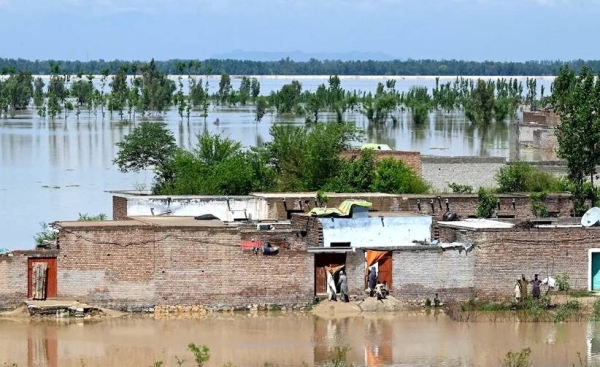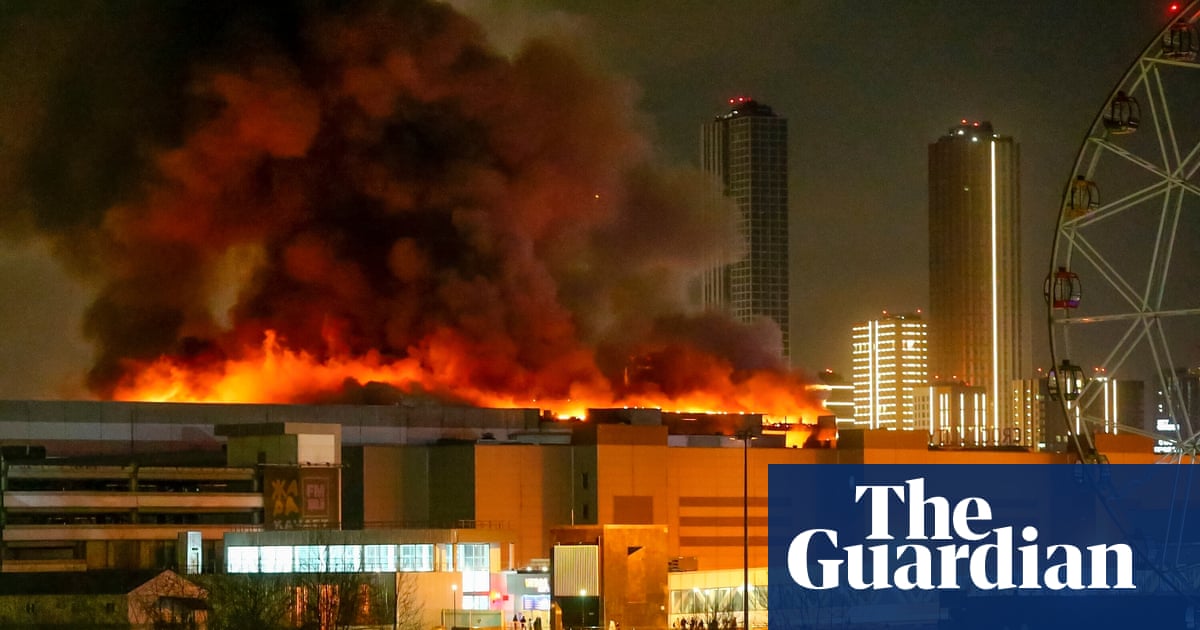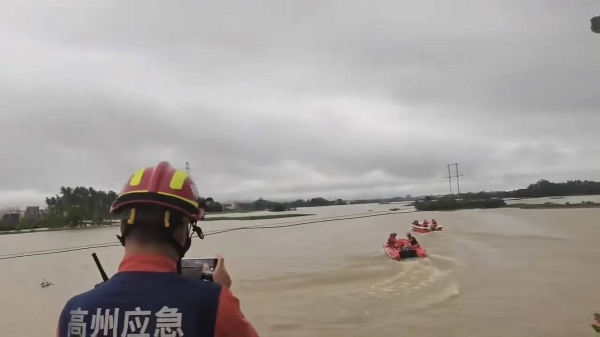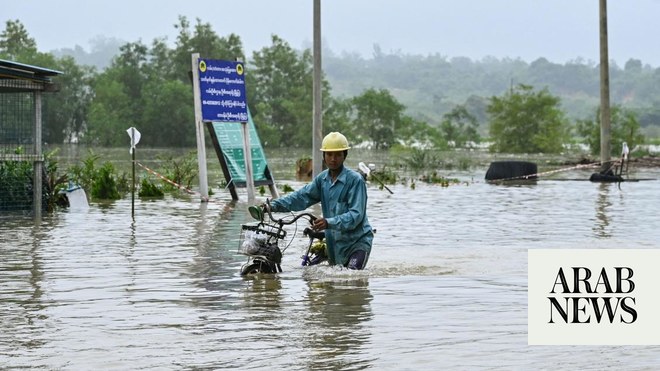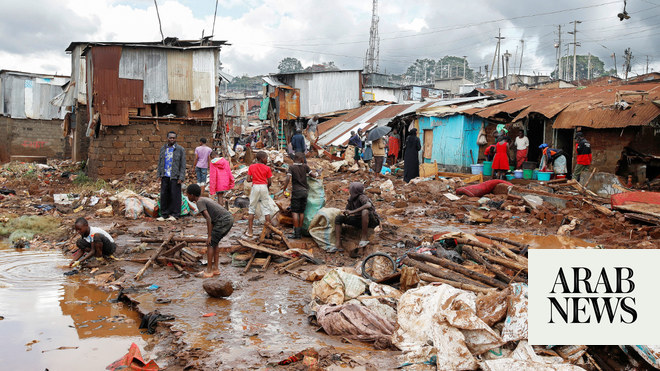
The death toll from floods and tornadoes in the US north-east rose past 40 on Thursday, as authorities continued to digest the full impact of the remnants of Hurricane Ida.
Ida struck Louisiana last Sunday, knocking out power to the city of New Orleans and causing deaths in that state and Mississippi.
The National Hurricane Center had warned since Tuesday of the potential for “significant and life-threatening flash flooding” and major river flooding in the mid-Atlantic and New England. The storm struck the region on Wednesday night.
Late on Thursday afternoon, after a day of rescue work and disruption to transportation and power, the governor of New Jersey, Phil Murphy, said he was “saddened to report that, as of right now, at least 23 New Jerseyans have lost their life to this storm.
“The majority of these deaths were individuals who got caught in their vehicles by flooding and were overtaken by the water. Our prayers are with their family members.”
In New York City, police said at least 12 people died, one in a car and 11 in flooded basement apartments that often serve as relatively affordable homes in one of the nation’s most expensive housing markets. Westchester county, a northern suburb of New York, reported three deaths.
Officials said at least five people died in Pennsylvania, including one killed by a falling tree and another who drowned in his car after helping his wife to escape.
In Connecticut, a state police sergeant perished after his cruiser was swept away. A 19-year-old man was killed in flooding at an apartment complex in Rockville, Maryland, police said.
In a speech at the White House in Washington on Thursday, Joe Biden said: “These extreme storms, and the climate crisis, are here. We must be better prepared. We need to act.”
New York’s new governor, Kathy Hochul, and the New York City mayor, Bill de Blasio, said the storm took them by surprise.
“We did not know that between 8.50pm and 9.50pm last night the heavens would literally open up and bring Niagara Falls level of water to the streets of New York,” said Hochul.
De Blasio said he had a forecast on Wednesday of 3in to 6in (7.6-15cm) of rain over the course of the day. Central Park ended up getting 3.15in in one hour, surpassing the previous recorded high of 1.94in in an hour – recorded during Tropical Storm Henri on 21 August.
Highways flooded, garbage bobbed in streaming streets and water cascaded into subway tunnels, trapping at least 17 trains and halting service until early morning. Videos online showed riders standing on seats in swamped cars. All riders were evacuated safely, officials said.
Harrowing reports were common. In Queens, water filled the sunken patio of one basement apartment then broke a glass door, trapping a 48-year-old woman in 6ft of water. Neighbours tried in vain to save her.
“She was screaming, ‘Help me, help me, help me!’” said the building’s assistant superintendent, Jayson Jordan. “We all came to her aid, trying to get her out. But it was so strong – the thrust of the water was so strong.”
A two-year-old boy was among the dead in Queens, where officers said they found three bodies around noon in a flooded basement near Kissena Park. Three other people, including two women and a man, were found dead on Thursday morning in a basement apartment in another part of the borough.
The storm ultimately dumped more than 9in of rain in parts of New Jersey, Pennsylvania, Massachusetts and Rhode Island, and nearly as much on Staten Island in New York City.
Hochul requested a federal emergency declaration for 14 counties including all of New York City. Biden assured residents across the north-east federal first responders were on the ground to help.
In Pennsylvania, three people were killed in Montgomery county, one by a falling tree while one drowned in a car and another in a home. Outside Philadelphia, officials reported “multiple fatalities”.
In Connecticut, a state trooper and his cruiser were swept away in Woodbury. In Plainville, authorities used boats to rescue 18 people.
In New Jersey, officials said four people were found dead in an apartment complex in Elizabeth from which 600 were made homeless. In Passaic, a 70-year-old man was swept away after his family was rescued from their car. He was reported to have drowned. In Milford Borough, authorities said they found a man’s body in a car buried up to its hood in dirt and rocks.
Newark international airport shut down on Wednesday night as videos showed water rushing through a terminal. The airport allowed limited flights on Thursday.
“There’s a lot of hurt in New Jersey,” Governor Murphy told ABC, discussing havoc caused by flooding in the north and tornadoes in the south.
On Thursday afternoon, he said: “We are still very much in the midst of the impacts of Ida. The storm struck while many areas were still saturated from rains from Henri, leading to severe flooding … which won’t subside for days.”
At least 220,000 were without power at some stage, with most outages in New Jersey and Pennsylvania. On Thursday afternoon Murphy said “approximately 44,000” in his state were still without power and “restoration may take some time”.
He added: “If you see a downed wire, or a downed tree that has taken a power line with it, do not attempt to either drive or climb over it. Stay clear, call it in, and leave it to the professionals.”
Major flooding along the Schuylkill River in Pennsylvania swamped highways, submerged cars and disrupted rail service. Amtrak service was affected between Philadelphia and Boston, as was New Jersey Transit train service. Officials cautioned against travel unless “absolutely essential”.
New York’s resilience to flooding was under renewed scrutiny. It was the second time in recent weeks that subway stations and streets were submerged.
In Central Park, about 10 trees were upended and there was some flooding. The NWS recorded 3.15in (8.9cm) of rain in the park in one hour, surpassing the previous recorded high of 1.94in (4.9cm) in one hour during Henri on 21 August.
Hurricane Ida struck Louisiana on Sunday as the fifth-strongest storm to ever hit the US mainland, leaving 1 million people without power, maybe for weeks. Scientists have warned such extremes will be more common with manmade global heating.
The Biden administration has pledged to tackle climate change but this week it was being criticized by environmental groups after resuming drilling auctions for oil and gas exploration.





